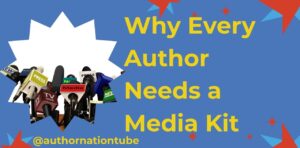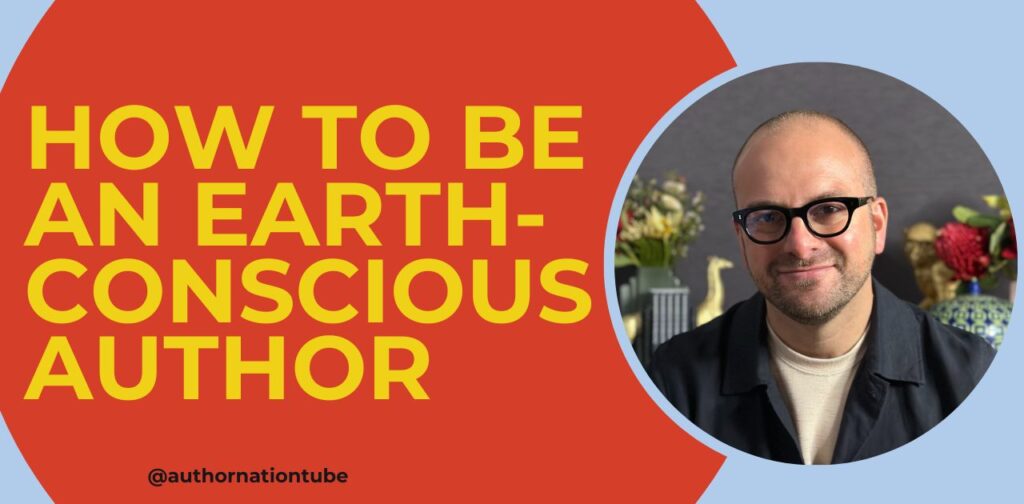
How To Be An Earth-Conscious Author: Practical Strategies to Reduce Your Literary Footprint While Writing for Impact.
Listen on Your Favorite Podcast Platform
Join host Melody Ann and sustainability expert John Pabon as they explore how to be an earth-conscious author in an industry with a significant environmental footprint. From deforestation to carbon emissions, they unpack the publishing sector’s impact and share actionable strategies for authors to reduce waste, choose eco-friendly publishing models, and avoid greenwashing. Whether you’re a seasoned author or just starting out, learn how to align your creative work with planetary stewardship.
What You Will Learn About How to Be an Earth-Conscious Author
- The Publishing Industry’s Environmental Impact
- Eco-Friendly Book Marketing Tips
- Avoiding Greenwashing
- The Future of Sustainable Publishing
Our Guest, John Pabon
John Pabon is a sustainability author, consultant, and founder of Fulcrum Strategic Advisors. With 20+ years of experience advising the UN, Fortune 500 companies, and global NGOs, he bridges the gap between environmental advocacy and practical business solutions. He’s the author of Sustainability for the Rest of Us and The Great Greenwashing, exposing deceptive practices in corporate sustainability.

Highlights From How to Be an Earth-Conscious Author
- John urges authors to vet publishers’ sustainability policies and demand accountability.
- Audiobooks and e-books reduce waste, but digital isn’t zero-impact—choose platforms committed to renewable energy.
- Authors can lead by example: avoid exaggerated eco-claims and focus on verifiable actions.
- John’s closing advice: Small, consistent steps matter. Use your voice, wallet, and creativity to drive change.
3 Immediate Actions You Can Take to Become An Earth-Conscious Author:
1. Research Publishers’ Sustainability Policies
Visit the websites of publishers you’re considering (traditional or indie) and check if they explicitly address environmental practices. Look for:
Use of recycled/FSC-certified paper
Carbon-neutral printing processes
Waste-reduction strategies for unsold books
2. Switch One Project to Digital-First
For your next book, essay, or promotional material, prioritize digital distribution (e.g., e-books, audiobooks, PDF guides). Platforms like BookFunnel or StoryOrigin make this easy. While digital isn’t zero-impact, it avoids the 32M trees/year cut for physical books and reduces shipping waste.
3. Amplify Eco-Conscious Messaging in 10 Minutes
Share one actionable tip from this episode on social media (e.g., “How To Be An Earth-Conscious Author: Start by asking publishers about their sustainability policies!”). Tag eco-minded authors or use hashtags like #SustainablePublishing. John highlights that speaking up shifts industry norms. Even small actions create ripple effects (e.g., Madeline Pendleton’s TikTok advocacy).
“Want to finally publish your book and start making money from it? Download my FREE 5-Day Nonfiction Book Marketing Challenge here.”
Recent Articles

Promote Your Book Globally With One Link | How To Use Universal Book Links
What Does It Mean to Promote Your Book Globally With One Link? If you’re still copy-pasting separate links for Amazon, Kobo, Barnes & Noble,

It’s Time To Get Creative With Book Launches | Do Authors Need a Book Launch Party
When it comes to publishing a nonfiction book, it’s time to get creative with book launches. Whether you’re an introverted expert or a bold thought

Why Every Author Needs a Media Kit | How To Create a Press Kit That Gets You Invited To Speak
Why Every Author Needs a Media Kit for Visibility Let’s face it, getting booked on a podcast or featured by a journalist isn’t about

